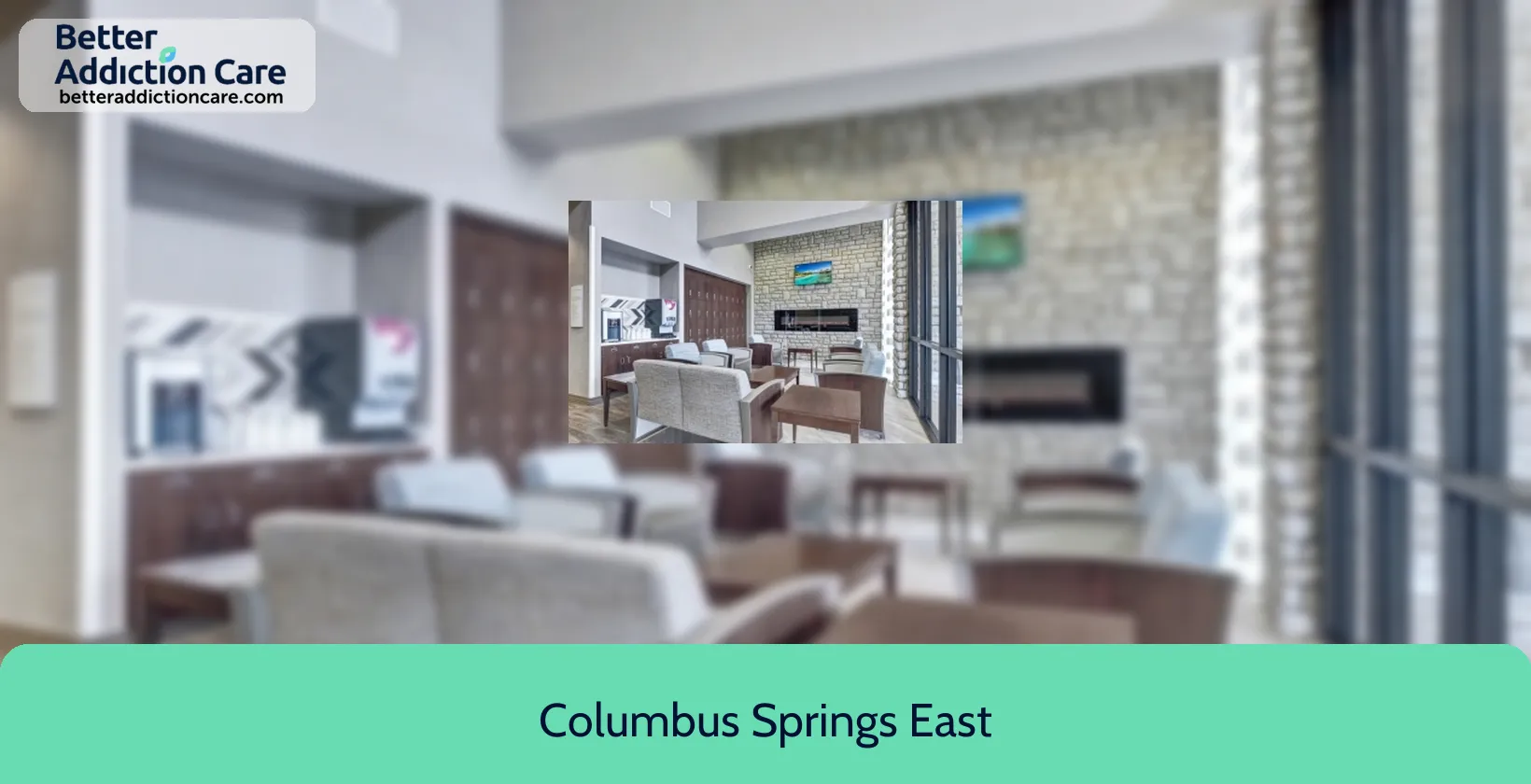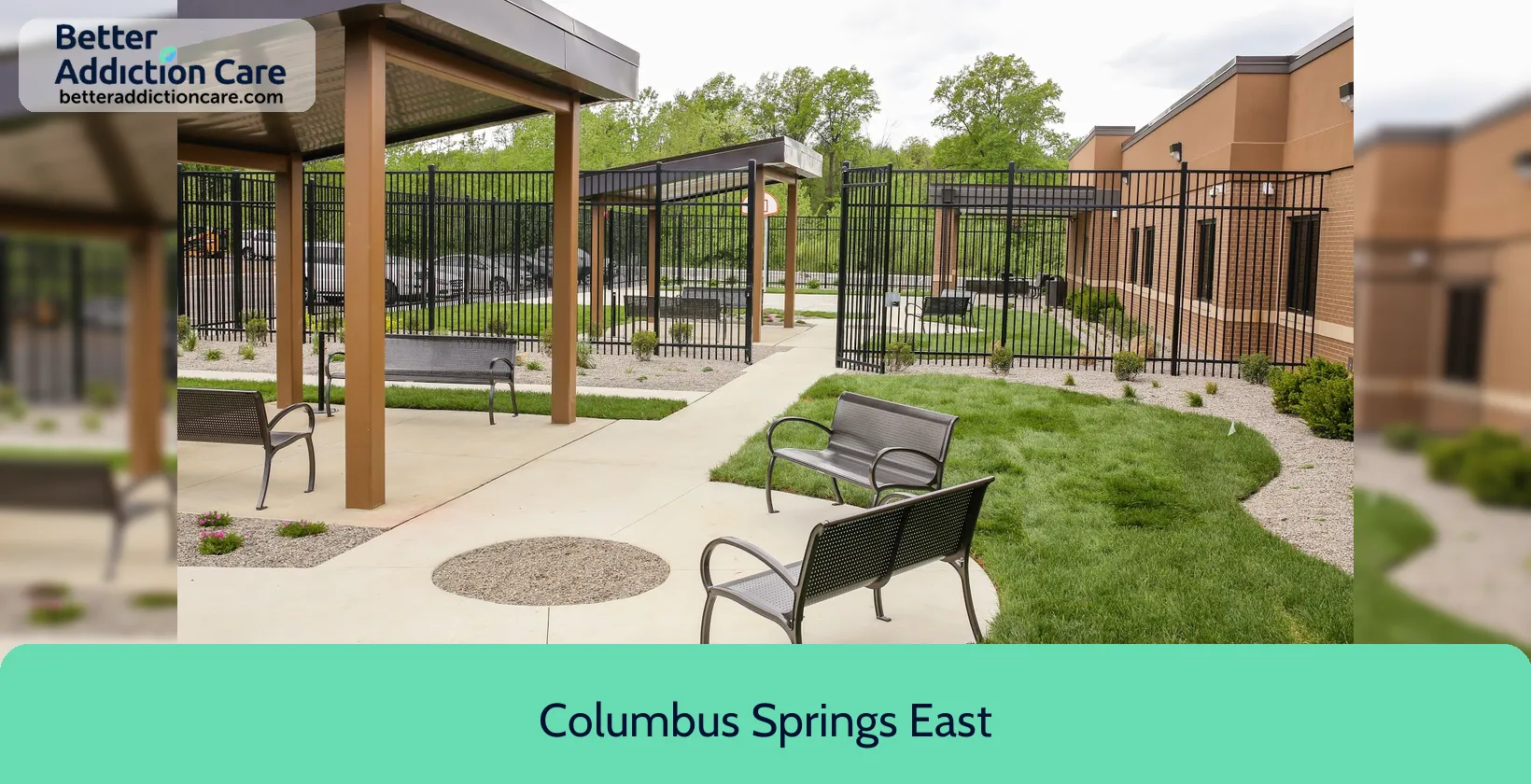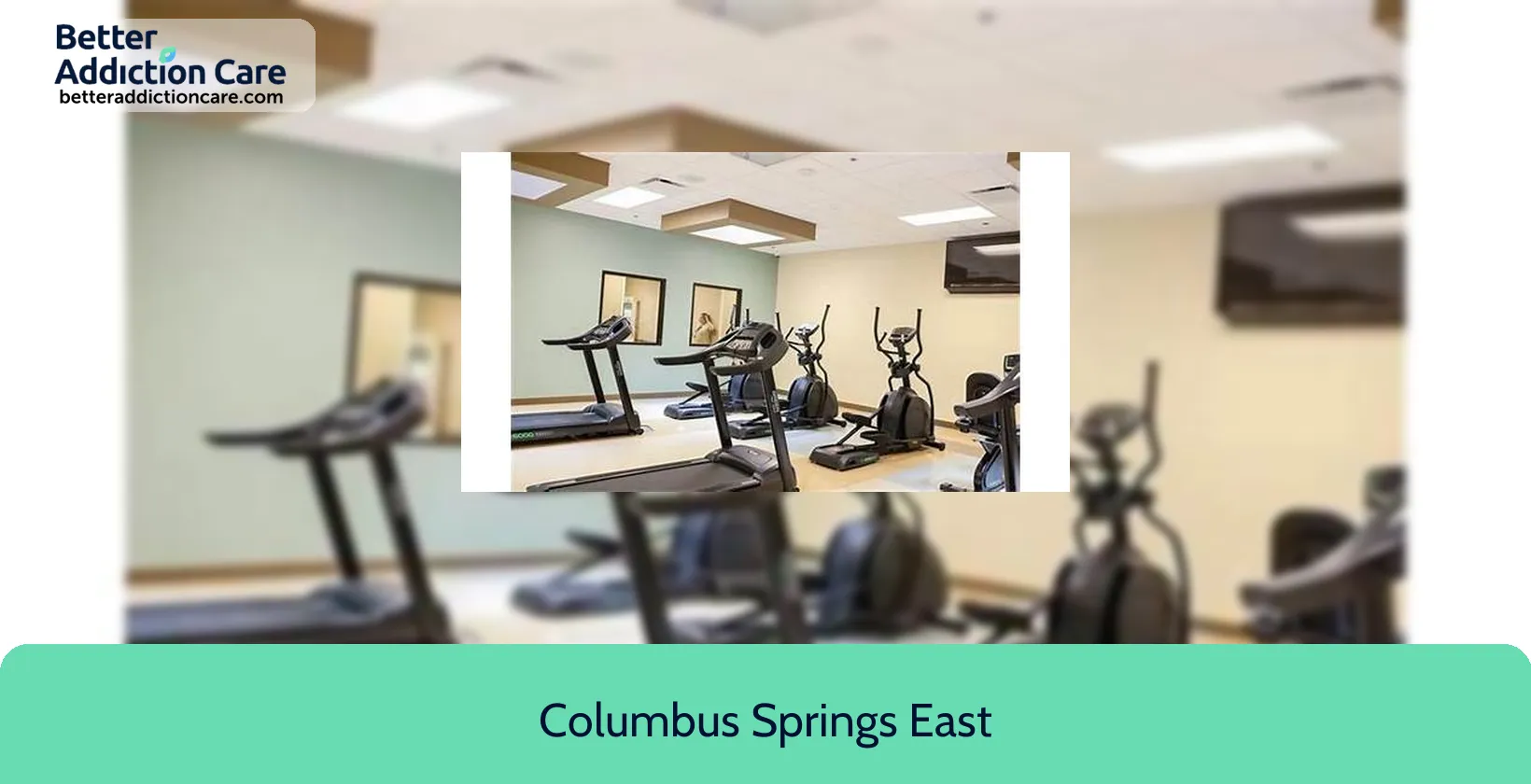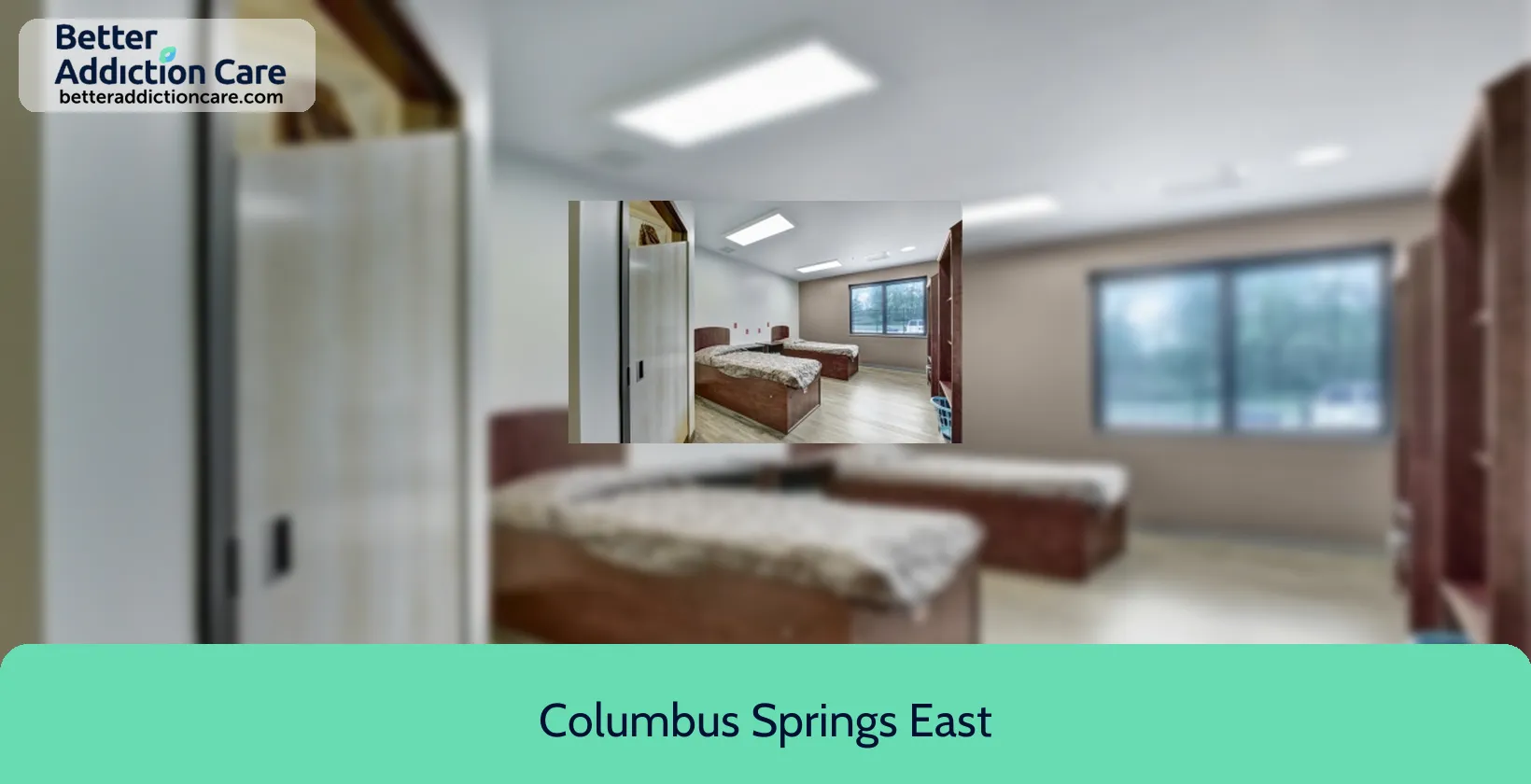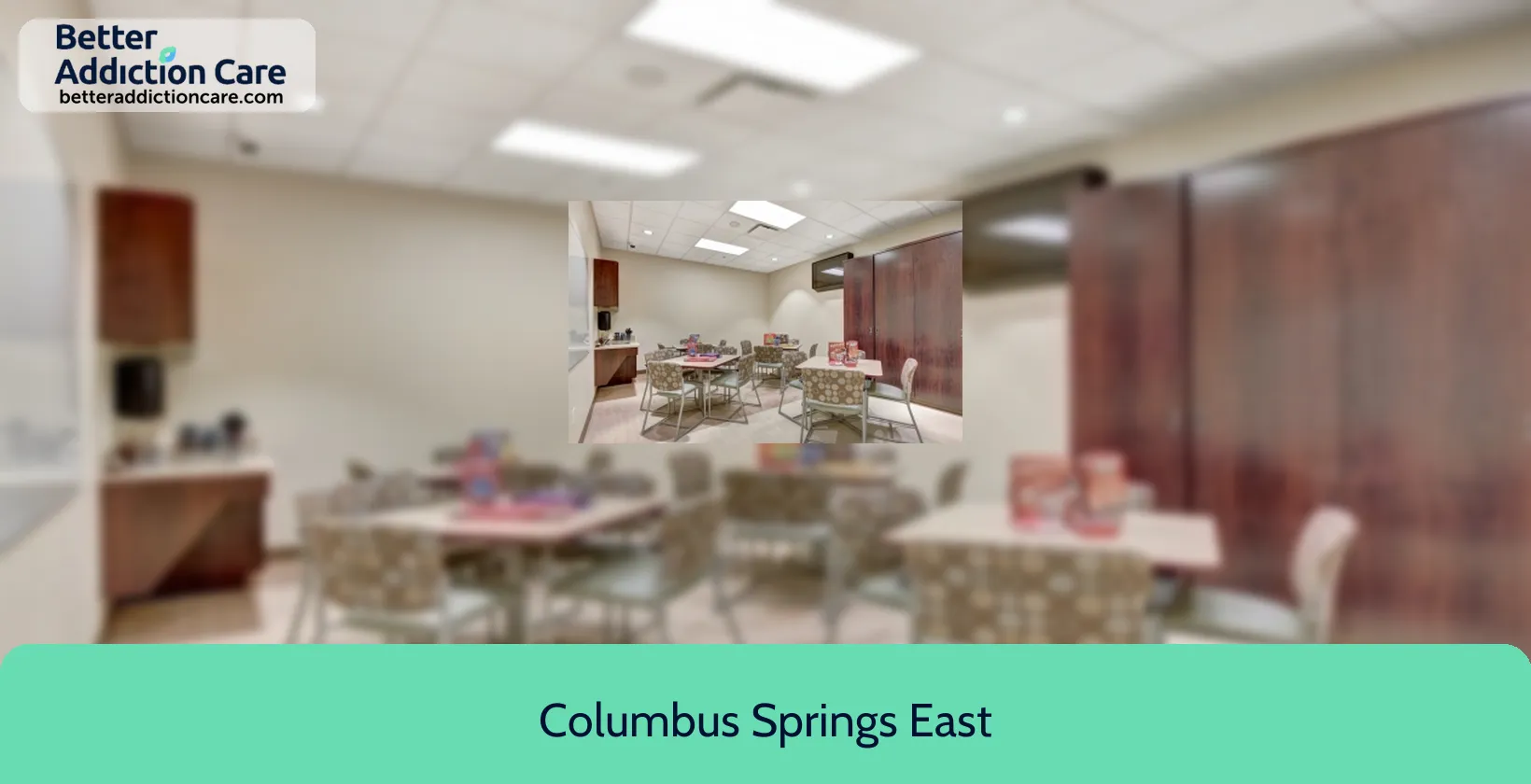Columbus Springs East
Overview
Columbus Springs, located in Columbus, Ohio, is a comprehensive treatment center dedicated to providing high-quality care for adults aged 18 and older who are struggling with alcohol and drug addiction, mental health issues, and co-occurring disorders. The center offers a full continuum of care, including inpatient mental health and rehabilitation treatment, a Partial Hospitalization Program (PHP), and an Intensive Outpatient Program (IOP), with the added convenience of telehealth options for those who may benefit from remote care.
Columbus Springs is also equipped with an FDA-approved Medication-Assisted Treatment (MAT) detox program, ensuring that clients receive safe and effective medical support during the detoxification process. Additionally, the center offers a specialized program tailored for children and teens aged 12 to 18, where young clients receive age-appropriate education through collaborations with local schools and teachers, allowing them to continue their academic progress while undergoing treatment.
The therapeutic offerings at the center includes individual therapy, group therapy, and family therapy, holistic, activity-based therapies such as art therapy, music therapy, and yoga, which promote physical, emotional, and spiritual well-being. Cognitive Behavioral Therapy (CBT) and Dialectical Behavior Therapy (DBT), and Fitness and wellness education that further supports clients in building a healthier lifestyle as part of their recovery journey. They also assists clients in connecting with community resources, including support groups such as Alcoholics Anonymous (AA) and Narcotics Anonymous (NA), to ensure that they have access to ongoing support beyond the treatment environment.
The center's commitment to excellence in care is reflected in its accreditations, which include certifications from LegitScript and The Joint Commission. These accreditations demonstrate Columbus Springs' dedication to maintaining the highest standards of safety, efficacy, and ethical treatment practices.
Columbus Springs East at a Glance
Payment Options
- Cash or self-payment
- Medicaid
- Medicare
- State-financed health insurance plan other than Medicaid
- Private health insurance
Assessments
- Comprehensive mental health assessment
- Comprehensive substance use assessment
- Outreach to persons in the community
- Screening for mental disorders
- Screening for substance use
Age Groups
- Young adults
- Adults
- Seniors
- Adolescence program
Ancillary Services
- Suicide prevention services
- Mental health services
- Transportation assistance
- Diet and exercise counseling
Highlights About Columbus Springs East
7.84/10
With an overall rating of 7.84/10, this facility has following balanced range of services. Alcohol Rehabilitation: 8.00/10, Drug Rehab and Detox: 8.46/10, Insurance and Payments: 7.33/10, Treatment Options: 7.58/10.-
Drug Rehab and Detox 8.46
-
Alcohol Rehabilitation 8.00
-
Treatment Options 7.58
-
Insurance and Payments 7.33
Accreditations
State mental health department:
State mental health department accreditation refers to the process of evaluating and certifying the quality and standards of a state's mental health department, ensuring that it provides high-quality services and meets specific criteria for mental health care. The accreditation process is performed by a third-party organization and helps to improve the overall care and treatment of individuals with mental health conditions.
The Joint Commission:

The Joint Commission accreditation signifies that a facility has met rigorous standards of excellence in patient care, treatment, and safety. It assures individuals and healthcare professionals that the accredited facility provides high-quality, evidence-based care for addiction and mental health issues, fostering trust and confidence in their services.
LegitScript:

LegitScript certification is awarded to programs and services that successfully complete a stringent application process initiated in 2018. This process ensures eligibility for credible providers offering mental health and co-occurring substance abuse treatment within Google's network while complying with HIPAA privacy laws.
Treatment At Columbus Springs East
Treatment Conditions
- 24-Hour Clinical Care
- Alcoholism
- Mental health treatment
- Substance use treatment
- Co-occurring Disorders
Care Levels
- Outpatient
- Short-term residential
- Residential detoxification
- Partial Hospitalization Program
- Intensive outpatient treatment
Treatment Modalities
- Cognitive behavioral therapy
- Substance use disorder counseling
- Trauma-related counseling
- Group counseling
- Family counseling
Ancillary Services
Languages
- Sign language services for the deaf and hard of hearing
Additional Services
- Pharmacotherapies administered during treatment
- Mentoring/peer support
- Breathalyzer or blood alcohol testing
Special Programs
- Clients with co-occurring mental and substance use disorders
- Clients who have experienced trauma
Get Help Now
Common Questions About Columbus Springs East
Contact Information
Other Facilities in Columbus

7.23

6.71

6.62

6.65

6.56

6.68

6.68

7.09
DISCLAIMER: The facility name, logo and brand are the property and registered trademarks of North Central Mental Health Services - Drug and Alcohol Treatment Program, and are being used for identification and informational purposes only. Use of these names, logos and brands shall not imply endorsement. BetterAddictionCare.com is not affiliated with or sponsored by North Central Mental Health Services - Drug and Alcohol Treatment Program.

